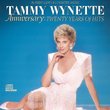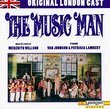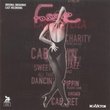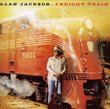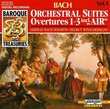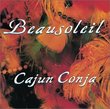| All Artists: Ralph Vaughan Williams, Kees Bakels, Bournemouth Symphony Orchestra Title: Vaughan Williams: Symphonies Nos. 5 and 9 Members Wishing: 0 Total Copies: 0 Label: Naxos Release Date: 1/19/1999 Genre: Classical Styles: Historical Periods, Modern, 20th, & 21st Century, Symphonies Number of Discs: 1 SwapaCD Credits: 1 UPC: 730099573825 |
Search - Ralph Vaughan Williams, Kees Bakels, Bournemouth Symphony Orchestra :: Vaughan Williams: Symphonies Nos. 5 and 9
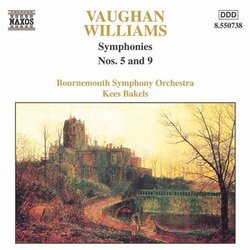 | Ralph Vaughan Williams, Kees Bakels, Bournemouth Symphony Orchestra Vaughan Williams: Symphonies Nos. 5 and 9 Genre: Classical
|
Larger Image |
CD DetailsSimilarly Requested CDs
|
CD ReviewsA Revelation -- Exquisite Symphonism Karl Henning | Boston, MA | 12/08/2000 (5 out of 5 stars) "The performance recorded on this disc was a revelation to me. For years I had enjoyed the "briefer" Vaughan Williams: his contributions to the English Hymnal, the odd chamber piece, the "Folk Song Suite" for band. But over the years, whenever I listened to recordings of the symphonies, I never cared for any of them. Not a one. Ever.And I gave them a try from time to time, because good musical friends of mine held them in very high regard. Nothing.Until listening to the Bournemouth Symphony on this disc.The orchestra sounds wonderful, and the group and conductor Kees Bakels together give these great two symphonies what has been easily the most sympathetic, most compelling, most achingly appropriate reading ever to fall on my ears.===================There is a brooding quality to the first movement of the ninth, which recalls slightly the opening of the Antartica. Recalls, without being repetitive; more a matter of a mature artist mulling anew a theme he has touched on before. Great trio (two clarinets and bass clarinet) -- praise both of the composer and the orchestra. Vaughan Williams is a master of textural contrast. The Andante sostenuto is a lyrical dialogue between a dolce horn theme, and a rhythmically brutish tutti suggestive of "The Last of the Mohicans." As "menacing scherzi" go, this one is grimmer than the Beethoven Opus 125, but is less fierce than the Shostakovich tenth. It is bumptious, and suggests something of the spirit of Dukas; surprisingly musical saxophones, apart from one "honk" which (we suppose) the composer intended :-) At the last, Vaughan Williams rounds off the bleakness, lightens up the gloom, with an Andante tranquillo finale, which transforms some of the material of the first movement." Great sounding, great music M. H. Bayliss | 09/23/2001 (5 out of 5 stars) "I was only familiar with Vaughan Williams from his shorter pieces like my favorite, Fantasia on a theme by Tom Tallis -- this is my first listen to his symphonies. So far, I'm enthralled. These two recordings are tremendous -- great music well played. I suppose you could say that Williams' signature style is beautiful renditions of subtlely blended and harmonized music. What most critics leave out is his sense of drama -- while bucolic in parts, these symphonies have sections that can blow you away! Keep in mind he did many film scores as well so these pieces sometimes have a cinematic quality to them. A great CD." Passionate David Saemann | 11/17/2008 (5 out of 5 stars) "These are two of the best performances of Vaughan Williams symphonies I ever have heard. I had a few reservations about Bakels's version of No. 2, the London, but it seems that in these later works with their more abstract inspiration Bakels has found surer footing. After all, he is Dutch, not English (Yes, I know that eminent Vaughan Williamsite Bernard Haitink is Dutch.). The sound engineering on this CD, from a 20-bit master, is absolutely breathtaking. To hear the glorious textures RVW summoned up so vividly is a real treat. The Fifth receives a reading full of passion. So often, the work is treated as the utterance of a contemplative, a seer. Well, RVW may have been prophetic, but he was a flesh and blood creature, too, and this symphony is an utterance of high emotional drama even if it eschews orchestral fireworks. I am convinced that, even more than Barbirolli and Boult, Bakels has penetrated to the heart of this symphony to an unusual degree. The Ninth is very successful, too. Although RVW completed five symphonies in his 70's and 80's, the Ninth is the only one that seems to be preoccupied with death. Bakels is au courant with the work's spooky orchestration (bring on those saxes and the flugelhorn), but he also has found a key to the momentum of the work. It is very easy to wallow in the misterioso feeling of this piece. Instead, Bakels moves things along so that when one finally comes to the fortissimo outbursts of the last movement, they are at a high pitch of drama and don't sound like isolated petualance. There have been fine versions of the Ninth by Previn, Thomson, and Slatkin, but I believe that I prefer Bakels. I only would add that the Bournemouth Symphony on this showing is a world class orchestra. If you doubt that they have served up some high quality Vaughan Williams on Naxos, try Paul Daniel's thrilling version of A Sea Symphony, too."
|

 Track Listings (8) - Disc #1
Track Listings (8) - Disc #1